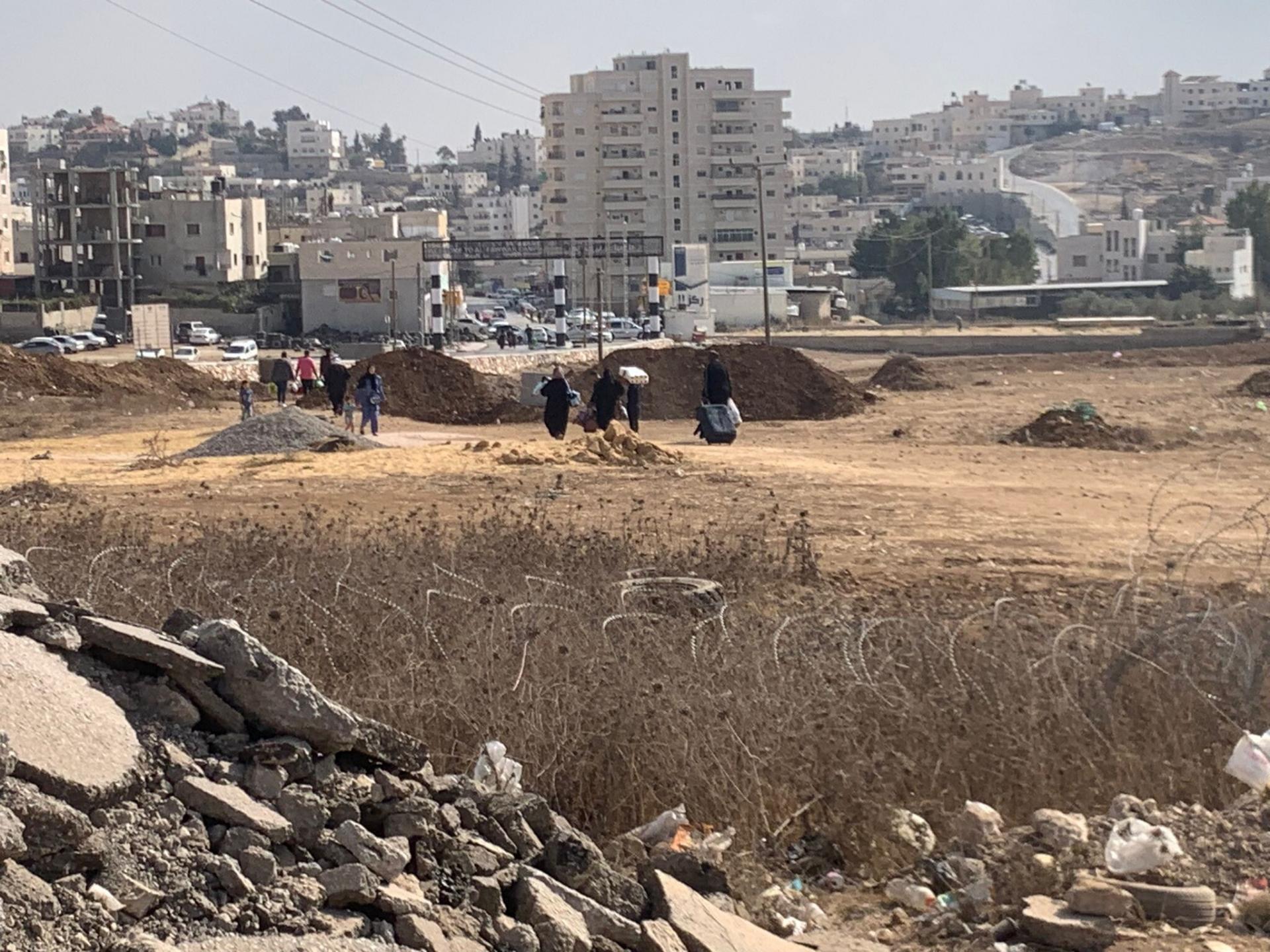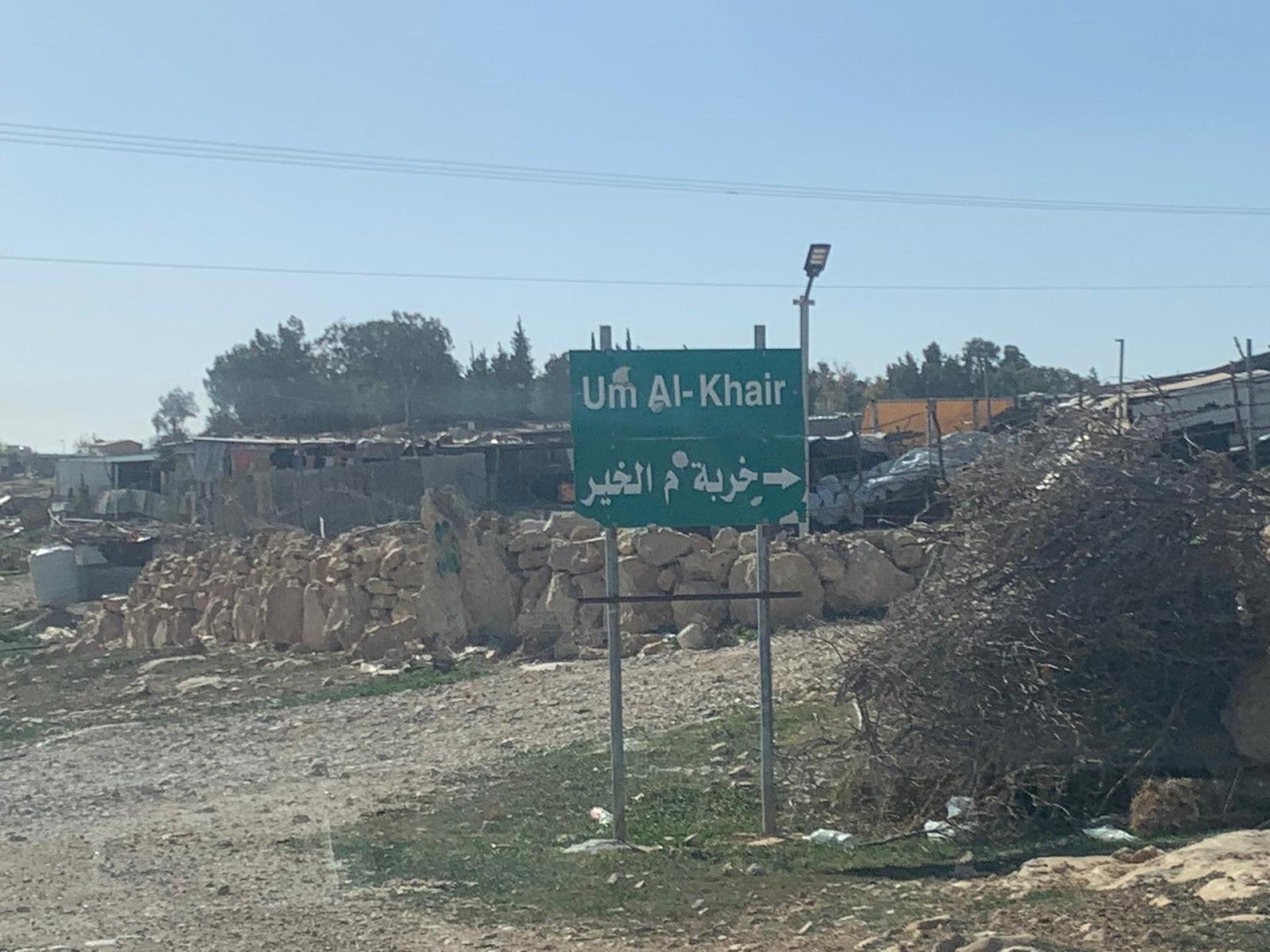South Mount Hebron: All Palestinian settlements are closed to vehicles. Depressing!

The Meitar Crossing was almost empty on both sides.
Route 60
Behind the checkpoint we could see the concrete wall that will replace the separation fence south of Masafer Yatta. The entrances and exits of all the communities, villages, and Khirbet sites are blocked and vehicles cannot enter or leave. The only exceptions are the small village of Deir Razih and the large community of Karame east of the road north of Samu’. The larger crossings such as Qilqlis, Dura al-Fawwar, the southern entrance to Hebron , and the Sheep Junction are blocked with yellow iron gates that can be opened and closed by the army and allow pedestrians to walk around Abda them. Other places such as Simia, Samu’, and are blocked by high dirt embankments or boulders. Sometimes evidence of cat and mouse games between the residents and the army are visible. People move boulders or move aside embankments to cross, and the bulldozers belonging to the army constantly return the boulders and soil to their places again.
that can be opened and closed by the army and allow pedestrians to walk around Abda them. Other places such as Simia, Samu’, and are blocked by high dirt embankments or boulders. Sometimes evidence of cat and mouse games between the residents and the army are visible. People move boulders or move aside embankments to cross, and the bulldozers belonging to the army constantly return the boulders and soil to their places again.
Dura al-Fawwar Junction: The residents are prevented from crossing the junction on the road and are forced to cross through the fields to the south.
Kikalis Junction: An army jeep is parked and guarding the junction.
The Sheep Junction: The parking lots on both sides of the junction were crowded. The residents were crossing on foot while soldiers patrolled the junction.
Route 356
The Zif-Yatta Junction was closed. The crossing to Khalet al-Maya was open.
Umm al-Kheir is adjacent to the fence of the settlement of Carmel, between the homes and the chicken houses. The settlement appeared to be empty. There were almost no children outside. We met Awad, a teacher at the school in the school in the village of Umm al-Kheir near the mosque. He seemed depressed and had little desire to speak to us. School is not in session because the Palestinian Authority has no money to pay the teachers’ salaries. They promised that perhaps school would begin again next week and the teachers would be paid, but he is doubtful. There are no international activists in the village. Halil works in Ramallah. We also met Salam, the husband of Ikhles who taught in the kindergarten we worked in ten years ago. Those were other, more hopeful days. Everywhere there is an atmosphere of depression and hopelessness. People don’t want to talk.
We continued on in the direction of A-Zwidin on the road leading to the Jordanian police building in Hashem Al-Daraj. We could see the buildings of Shorashim Farm. In A-Zwidin we were told that they could not graze their flocks on the side of the farm because the army comes immediately and evicts them. They direct their sheep to the other side to Umm Gusa, where we reported from last week.
Route 317
On the way back when we approached Samu’ from the north Muhammad pointed to a tent site near Asael on the southwest edge of Samu’. This is where Saleh Abu Awad moved to after he was evicted from his former location by the unruly settlers from the Mikneh Yehuda run by Yisrael Kaplan. They were perhaps helped by the settlers from Meitarim Farm belonging to Yinon. Saleh called Muhammad and asked him to help to report the eviction or to seek legal assistance because Yisrael Kaplan’s settlers continue to harass him. He planted oats to feed his sheep at his new location, but settlers from the Mikneh Yehudah Farm came up there with their flocks and destroyed everything that he had planted. He hopes to get legal assistance from the Yesh Din Organization. We asked him to send a location of where he had settled but his phone is old and he was unable to do so. We want to meet, but it is dangerous for us (Mira) to enter Samu’ and Saleh is afraid to leave his tent and go up to the road. He cannot send his location next to the dirt embankments because he is not familiar with technology, so we are unable to communicate.


